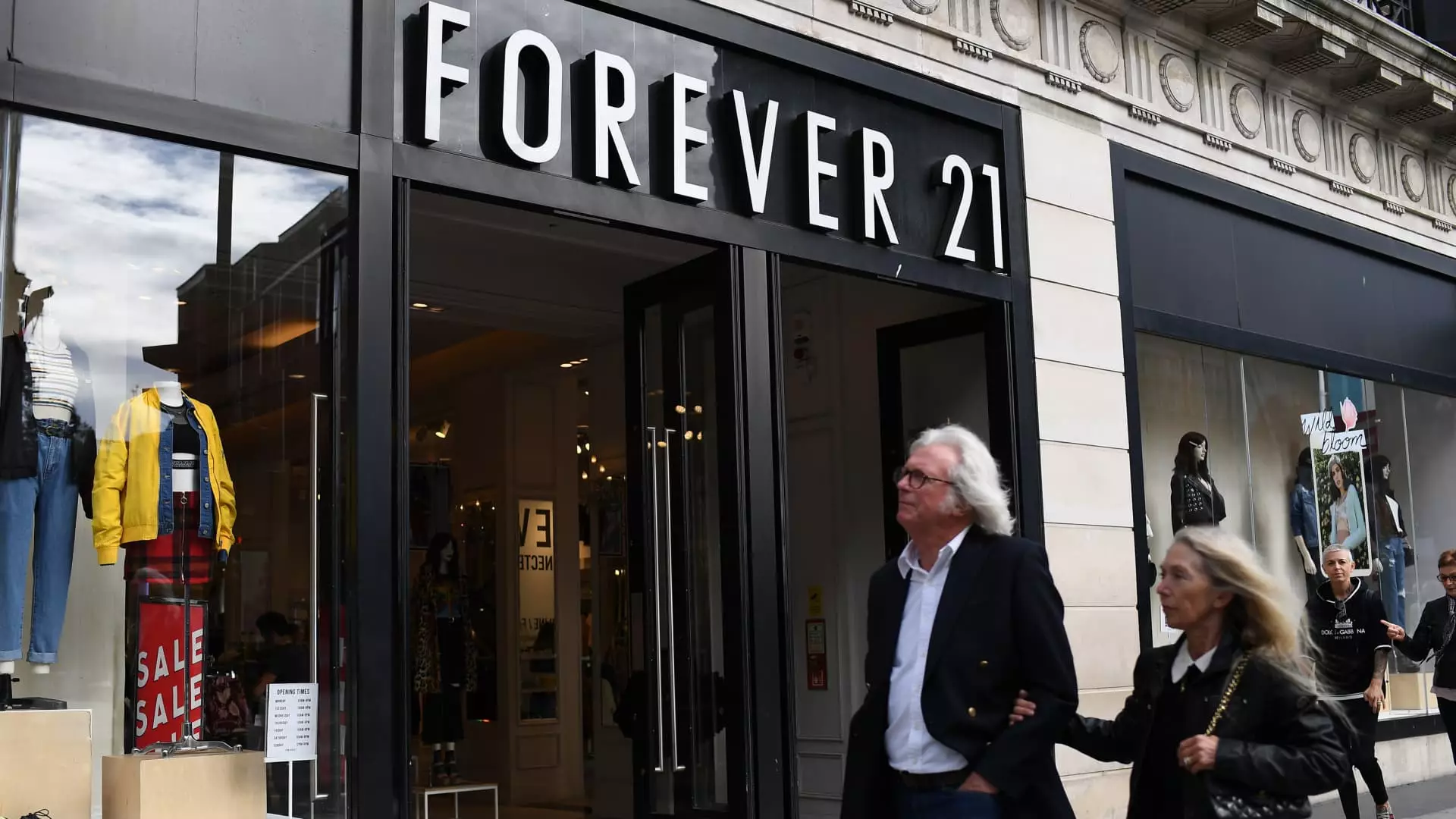Forever 21, a well-known fast fashion brand, is currently facing financial challenges that have led them to seek assistance from landlords in reducing their rent. With over 380 stores in the U.S., the retailer has reportedly asked some landlords to cut rent by up to 50%. This move comes as the company’s sales continue to decline, and it struggles to remain competitive in the fast-evolving fashion industry.
One of the reasons behind Forever 21’s financial woes is its inability to effectively manage its inventory and understand the changing needs of its consumers. Although the company underwent a bankruptcy filing in 2019 and was later acquired by a consortium including Authentic Brands Group, Simon Property Group, and Brookfield Property Partners, it continues to face challenges in restructuring its operations to cut costs and improve its financial performance.
Forever 21 operates in a saturated fast fashion market, where competitors like Shein and Temu have gained significant traction due to their ultra-fast fashion business models. These newer players leverage on-demand manufacturing processes to quickly respond to trends and consumer demands, posing a significant challenge for legacy brands like Forever 21.
While Forever 21’s operator, Sparc Group, has also faced financial struggles due to the merger of several legacy brands and attempts to centralize operations, the retailer’s recurring issues with late vendor payments further highlight its financial instability. Late payments can be indicative of larger financial troubles and may impact the overall health of the business in the long run.
The rise of ultra-fast fashion retailers like Shein and Temu has posed a significant threat to established players like Forever 21. These new competitors can quickly replicate viral trends seen on social media platforms like TikTok, making it challenging for traditional brands to keep up with the rapid pace of the industry.
Authentic Brands CEO Jamie Salter admitted that acquiring Forever 21 might have been a misstep, acknowledging that the company failed to recognize the competitive threat posed by Shein and Temu. As a result, the partnership between Sparc Group and Shein was formed, with Shein taking a stake in Sparc and the two companies collaborating on co-branded products.
Given Forever 21’s ongoing struggles with its leases and the success of Shein’s pop-up stores, some industry observers have questioned whether Shein could potentially take over Forever 21’s physical retail spaces. However, concerns remain about Shein’s lack of experience in operating brick-and-mortar stores and its business model, which relies on small-batch production and rapidly changing inventory.
Forever 21’s challenges in the fast fashion market highlight the evolving nature of the industry and the need for companies to adapt to changing consumer preferences and market dynamics. As competition intensifies and new players enter the scene, legacy brands like Forever 21 will need to innovate and transform their operations to stay relevant and competitive in the ever-changing retail landscape.

